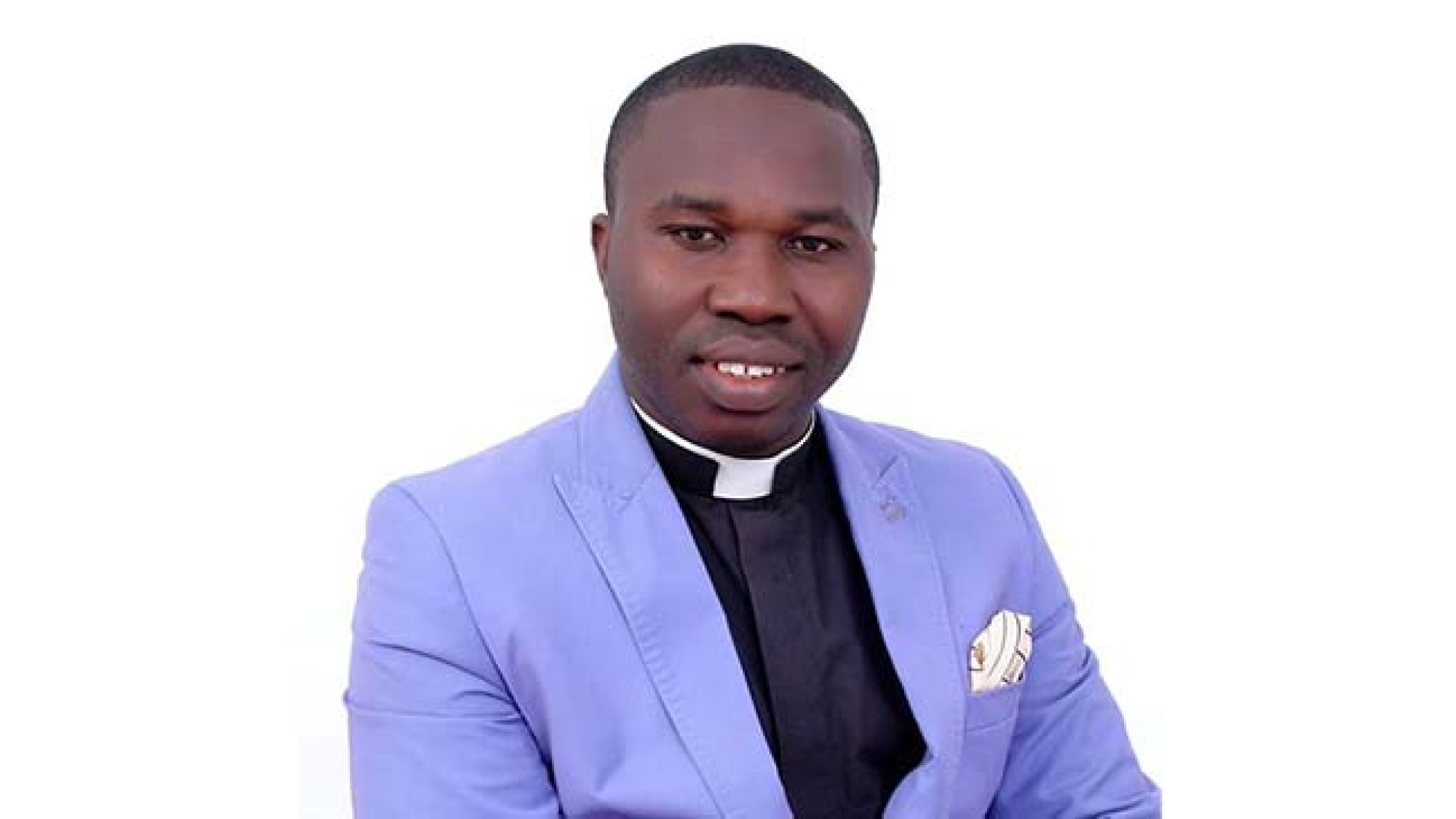INTRODUCTION
Marriage is a sacred institution, a union of two souls—male and female—bound by love and commitment. However, as beautiful as it is, marriage requires constant effort and dedication to thrive. It is a journey that often demands working through challenges, conflicts, and personal growth. The truth is that great marriages do not happen by accident but through hard work, determination, and commitment. Robert C. Dodds, a British artist, has said that “the goal of marriage is not to think alike, but to think together and make it better.” This article explores the concept of working out your marriage with fear and trembling, providing some factors for nurturing a strong and lasting marriage.
UNDERSTANDING THE SIGNIFICANCE OF FEAR AND TREMBLING
The phrase “fear and trembling” may seem to contradict the concept of a loving and harmonious marriage. However, this phrase, borrowed from the biblical text, Philippians 2:12 NKJV, “Therefore, my beloved, as you have always obeyed, not as in my presence only, but now much more in my absence, work out your own salvation with fear and trembling,” serves as a metaphorical reminder of the seriousness and reverence that marriage demands. Just as one approaches matters of faith with sincere reverence, so too should we approach our marriage vows, recognising the weight of our commitments and the consequent responsibility to work diligently on our relationships.
Understanding the significance of fear and trembling is crucial for personal growth and self-discovery. When we confront our fears and embrace our vulnerabilities, we open ourselves up to the transformative experiences and profound insights that go into building and sustaining our marital relationships. Fear and trembling often accompany moments of growth and change. Stepping outside our comfort zone and facing our fears is necessary to evolve as individuals. It challenges us to confront our limitations, push boundaries, and discover new possibilities.
Fear and trembling can lead to greater self-awareness and introspection. When we acknowledge and examine our fears, we gain a deeper understanding of ourselves, our motivations, and our aspirations. This self-awareness helps us make more conscious choices and align our actions with our values. By embracing these emotions, we can work on overcoming our fears and breaking free from self-imposed barriers. This process allows us to reach our full potential and achieve personal growth and success.
Understanding this concept can also strip away the masks we wear and expose our true selves. By embracing vulnerability, we foster authentic connections with ourselves and spouses as well as those we come into contact with. Being authentic allows one to build trust, intimacy, and deeper relationships, enhancing our overall well-being.
FACTORS TO CONSIDER ON WORKING OUT OUR MARRIAGES
The truth is that God-ordained marriage involves spiritual, emotional, and physical closeness. In the Old Testament, we are taught, “Therefore shall a man leave his father and his mother, and shall cleave unto his wife: and they shall be one flesh” (Genesis 2:24). Married couples are meant to be unified in every possible way. God-ordained marriage is for enjoyment, not endurance. Unfortunately, some are enduring it instead of enjoying it. Many marriages have collapsed, and others are on the verge of collapsing because couples are unable to understand and comply with basic principles that go with it. Below are some factors to help one work out his or her marriage irrespective of its current state.
- CULTIVATING SELF-AWARENESS:
Cultivating self-awareness in marriage is an essential aspect of building a strong and healthy relationship. The foundation for working out a marriage starts with cultivating self-awareness. Dolly Parton says, “Find out who you are and do it on purpose.” Understanding oneself allows for a better understanding of your partner’s needs, desires, and vulnerabilities. Take time for introspection, reflecting on your values, emotional triggers, and communication styles. Recognise that personal growth is an ongoing process that impacts the dynamics within a marriage. Cultivating self-awareness is a fundamental aspect of personal growth and development.
This self-reflection can help you communicate your feelings more effectively and prevent unnecessary conflicts. Cultivate the habit of being present in the moment and paying attention to your thoughts, feelings, and bodily sensations without judgment. This can help you become more aware of your patterns and reactions within your marriage. Also, ask your partner for honest feedback on your strengths and weaknesses. This can provide valuable insights into areas that need improvement or where you may be unaware of certain behaviours or patterns that impact your marriage.
Reflect on your actions, reactions, and decisions, and consider how they may have influenced your marriage dynamics. Furthermore, developing empathy for yourself and your partner is crucial in fostering self-awareness in marriage. Put yourself in your spouse’s shoes and try to understand his or her perspective, feelings, and needs. This can help you recognise how your actions or behaviours impact him or her and create a space for open and compassionate communion.
- DEVELOP GOOD COMMUNICATION SKILLS:
Communication is a vital element in any marriage. Elizabeth Bougeret says, “Communication is the lifeline of any relationship.” Effective communication can foster intimacy, trust, and understanding between partners, while poor communication can lead to misunderstandings, conflicts, and a breakdown of the relationship.
To be able to work at it, one has to practice active listening by giving your full attention to your partner when he or she is speaking. Show interest, maintain eye contact, and avoid unnecessary interruptions. Reflect back on what your partner has said to ensure you understand his or her perspective accurately. Also, learn to encourage open and honest communication by creating a safe and non-judgmental space for sharing. Be transparent about your thoughts, feelings, needs, and concerns, and encourage your partner to do the same. Express yourself in a constructive and respectful manner.
Pay attention to non-verbal cues such as body language, tone of voice, and facial expressions. These can often convey more than words alone. Be aware of your own non-verbal communication and strive for consistency between your verbal and non-verbal messages. Try to put yourself in your partner’s shoes and see things from his or her perspective. Practice empathy and strive to understand his/her feelings and needs. Validate your spouse’s emotions even if you may not agree with him or her. This can help foster a deeper connection and reduce defensiveness.
Set aside dedicated time for communication in your marriage. This could be through regular check-ins, weekly meetings, or date nights where you can focus on one another. Create an environment free from distractions, such as phones or television or carrying office work to the home when your spouse needs your attention, to ensure meaningful conversations. Remember, effective communication is a skill that requires practice and effort from both partners. By prioritising communication and continually working on it, you can build a strong foundation for a healthy and fulfilling marriage.
- NURTURING LOVE, RESPECT, AND TRUST:
Nurturing love, respect, and trust in a marriage is crucial for the long-term happiness and success of the relationship. According to Mignon McLaughlin, an American author, “A successful marriage requires falling in love many times and always with the same person.” Learn to express your love for your partner regularly through words, gestures, and physical affection. Small acts of kindness, such as a loving touch or a heartfelt compliment, can go a long way in making your partner feel valued and cared for.
Take the time to appreciate and acknowledge your partner’s positive qualities, efforts, and contributions. Expressing gratitude and recognising their value in your life helps strengthen the bond between you. Be open and honest with your partner, sharing your thoughts, fears, and desires. Avoid criticism, defensiveness, and stonewalling, and instead, strive for understanding and empathy. Treat your partner with kindness, courtesy, and respect in all aspects of your interaction.
Avoid belittling or demeaning behaviours, and be mindful of the impact your words and actions have on your partner’s self-esteem. Encourage and support each other’s goals and aspirations. Trust is built over time through consistent behaviour and reliability. As much as possible, make every effort to keep your promises and commitments, and be there for your partner in times of need. Trust is fragile and takes time to develop, so prioritise actions that promote trustworthiness.
Show appreciation for boundaries and personal space: Respect your partner’s need for personal time and space. Encourage him or her to pursue his or her own hobbies, interests, and friendships. Giving each other space fosters independence and allows for personal growth, which can strengthen the relationship. Justin Wetch says, “Love starts as a feeling, but to continue is a choice.” Remember, building love, respect, and trust in a marriage is also an ongoing process that requires effort and commitment from both partners.
- CULTIVATING THE HABIT OF FORGIVENESS:
Forgiveness in marriage is an essential component of maintaining a healthy and strong relationship. It involves letting go of resentment, anger, and hurt caused by your partner’s actions or mistakes. Couples ought to understand the importance of forgiveness. Dave Meuer once said, “A great marriage is not when ‘perfect couples’ come together; instead, it is when imperfect couples learn to enjoy their differences.”
Forgiving your partner allows you to move forward and rebuild trust in the relationship. Holding onto grudges can create a toxic environment and hinder the growth and progress of the marriage. Talk to your partner about the issue that caused the hurt or pain. Share your feelings and concerns, and allow him or her to express his or her sentiments. Try to understand your partner’s intentions, motivations, and circumstances surrounding their actions. Empathy and compassion can help you develop a deeper understanding and make it easier to forgive.
While your partner may have caused you pain, it’s essential to recognise and take responsibility for your emotions. Understand that forgiveness is a choice you make for your own well-being when you allow yourself to let go of negative emotions and move forward. Forgiveness is a process that takes time. Healing wounds and rebuilding trust don’t happen overnight. Forgiveness does not mean forgetting or condoning the behaviour that caused the pain. It means giving your partner a chance to earn back your trust. This can be achieved through consistent, reliable, and trustworthy behaviour over time. If the hurt or betrayal is significant, seeking the assistance of a qualified godly marriage counsellor can be beneficial. They can guide you and your partner through the forgiveness process and help you both heal and rebuild your relationship.
- CULTIVATE A GOOD SEXUAL LIFE:
Sex plays a key and vital role in marriage. God made sex for marriage, so couples must work hard to ensure they enjoy their sexual life. Sex in marriage is a way to experience physical pleasure and intimacy with one’s spouse, viewed as a natural and healthy expression of love and desire between spouses. It fosters emotional connection and bonding, deepening the overall connection between partners. Sex is also a means to procreate and build a family together, providing a source of entertainment for the couple. Couples must ensure they enjoy their sexual life to its fullest to prevent seeking enjoyment outside the walls of the marriage.
Sex serves as a form of communication within a marriage, allowing partners to express their love and desire for each other. It can also address conflicts, maintaining a strong and healthy relationship. Moreover, sex is a pleasurable and stress-relieving activity, providing a break from the day-to-day pressures of life. It allows couples to unwind, reconnect, and find solace in each other’s presence.
- BUILDING ON CHRIST, THE SOLID ROCK:
In working out your marriage, couples must learn to build their marriages on Christ, who is our firm foundation and the solid rock. “A cord of three strands cannot be easily broken” (Eccl. 4:12 NIV). Building your marriage on God involves making Him the foundation and center of the relationship. Couples must involve God in the decision-making process, seeking His wisdom and guidance when making important choices.
Always ask God to direct your steps and align your hearts with His will. Couples must make studying and applying the Bible a priority in their marriages, applying biblical principles and teachings to their relationship daily. Regularly praying together as a couple is essential, as couples who pray together stay together. Pray for each other’s needs, desires, and challenges, seeking God’s help and intervention in your marriage.
Praying together strengthens your connection with God and with each other. Avoid leaving your partner behind during Bible studies and prayer time. Cultivate the habit of holding hands together, as this helps build your faith in God. Attend church services together and engage in corporate worship, as worshiping God as a couple can deepen your spiritual bond and remind you of His presence and importance in your lives.
Find ways to serve God together as a couple in your own capacity, such as volunteering in church ministries or engaging in community service. Serving together builds teamwork, unity, and a shared sense of purpose between couples.
CONCLUSION
Working out your marriage with fear and trembling requires perseverance, commitment, and determination. It is a continuous journey of self-discovery, growth, and nurturing the bond with your partner. By cultivating self-awareness, communicating effectively, nurturing love and trust, cultivating the habit of forgiveness by addressing conflicts constructively, promoting a good sexual life, and, above all, making Christ the foundation of your marriage, you can build a strong and lasting relationship.
Remember, a successful marriage is a testament to the power of love, resilience, and the belief that together, you can overcome any obstacle. Never forget that your marriage has the power to determine where you will spend eternity, be it heaven or hell. Hence, the need to work at it with all fear and trembling.
Report by Pastor Prince Augustine Ababio (Jema Nkwanta District, Kintampo Area)














